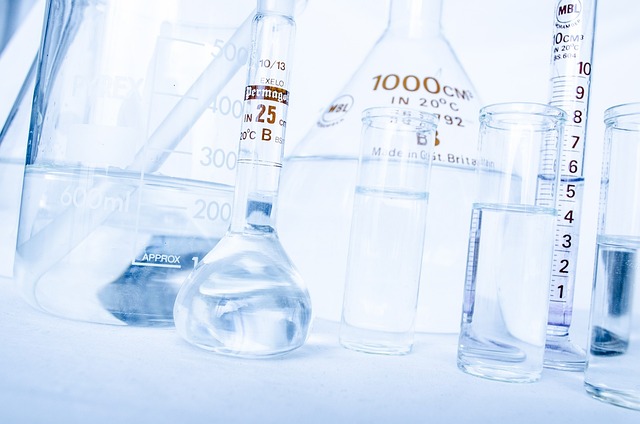The Male Hormone Blood Test UK is a comprehensive tool for assessing heart health by measuring LDL ('bad') cholesterol, HDL ('good') cholesterol, and total cholesterol. According to NHS guidelines, optimal ranges are below 5.0 mg/dL for total cholesterol, under 3.0 mg/dL for LDL, and above 1.0 mg/dL for HDL. Deviations require discussions with healthcare providers who can advise on lifestyle adjustments or medical treatments. Understanding test results is crucial, as they're interpreted based on personal factors including age, sex (Male Hormone Blood Test UK), and health status. The goal is to manage LDL while increasing HDL, with regular follow-up tests recommended for high-risk individuals.
“Cholesterol management is key to overall health, and understanding your cholesterol levels starts with a simple blood test. This comprehensive guide explores the process of cholesterol level testing through blood tests, focusing on ‘Male Hormone Blood Testing’ in the UK. We’ll delve into what to expect during and after the test, how it relates to male hormone health, and provide insights into interpreting results. By understanding these key aspects, individuals can take informed steps towards managing their cholesterol effectively.”
- Understanding Cholesterol Levels: What to Expect from a Blood Test
- Male Hormone Blood Testing: Uncovering the Connection to Cholesterol
- Interpreting Results and Next Steps After a Cholesterol Blood Test in the UK
Understanding Cholesterol Levels: What to Expect from a Blood Test
Cholesterol levels are a key indicator of heart health, and understanding what your blood test results mean is crucial for maintaining overall well-being. A Male Hormone Blood Test UK, which often includes cholesterol profiling, measures the amount of low-density lipoprotein (LDL) or ‘bad’ cholesterol, high-density lipoprotein (HDL) or ‘good’ cholesterol, and total cholesterol in your blood. Normal levels of HDL cholesterol help protect against heart disease by removing LDL cholesterol from your arteries.
When you get a Male Hormone Blood Test UK, the results will typically be expressed as milligrammes per decilitre (mg/dL). According to NHS guidelines, total cholesterol levels below 5.0 mmol/L (1.9 mg/dL) are considered optimal for adults. LDL cholesterol levels should be under 3.0 mmol/L (1.17 mg/dL), while HDL cholesterol levels above 1.0 mmol/L (0.4 mg/dL) are desirable. If your test results fall outside these ranges, it’s important to discuss the findings with your healthcare provider, as they can guide you on lifestyle changes or medical interventions to manage your cholesterol levels effectively.
Male Hormone Blood Testing: Uncovering the Connection to Cholesterol
In the UK, men often overlook a crucial aspect of their health: monitoring cholesterol levels through male hormone blood tests. This simple yet powerful tool provides valuable insights into an individual’s cardiovascular health and can help predict potential risks. The connection between hormones, specifically testosterone, and cholesterol is a fascinating area of study. Testosterone, as a primary male sex hormone, plays a significant role in maintaining healthy cholesterol levels. Imbalances or deficiencies in this hormone can lead to disruptions in lipid metabolism, potentially resulting in elevated LDL (bad) cholesterol and decreased HDL (good) cholesterol.
By undergoing a Male Hormone Blood Test UK, men can gain a comprehensive understanding of their hormonal health and its impact on cholesterol profiles. This test typically measures various hormones, including testosterone, and provides critical data for healthcare professionals to assess overall cardiovascular wellness. Early detection of any imbalances can lead to proactive lifestyle changes or medical interventions, thereby reducing the risk of heart disease and other related conditions.
Interpreting Results and Next Steps After a Cholesterol Blood Test in the UK
After a cholesterol blood test in the UK, understanding your results is key to taking control of your health. Your healthcare provider will interpret the data based on several factors including your age, sex (male hormone blood test UK), and overall health. Generally, total cholesterol levels are categorised as optimal (less than 5mmol/L), borderline high (5-7mmol/L), or high (over 7mmol/L). LDL (low-density lipoprotein) cholesterol, often referred to as ‘bad’ cholesterol, should be kept low as it can build up in the arteries and increase the risk of heart disease. HDL (high-density lipoprotein) cholesterol, known as ‘good’ cholesterol, helps remove LDL from the bloodstream. Higher levels of HDL are protective against cardiovascular issues.
If your cholesterol levels fall into a concerning category, your doctor will discuss next steps. This could include lifestyle changes such as adopting a healthier diet, increasing physical activity, and quitting smoking (if applicable). For some individuals, especially those with elevated risk factors, medication may be prescribed to manage cholesterol levels. Regular follow-up tests are also recommended to monitor progress and adjust treatment plans accordingly.
Cholesterol level testing through blood tests, including the male hormone blood test UK, is a vital step towards maintaining heart health. By understanding your cholesterol levels and taking appropriate actions based on interpretations of these results, you can significantly enhance your overall well-being. Remember that regular check-ups and informed decisions are key to managing cholesterol effectively.
